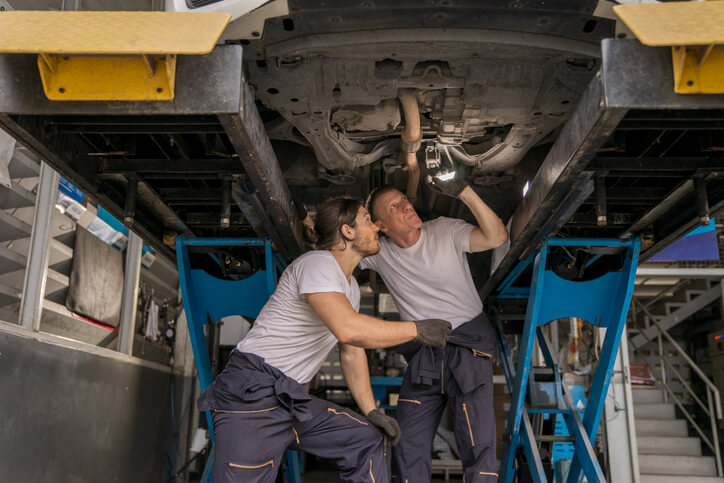4 Essential Skills You’ll Develop In Diesel Mechanic Training
Diesel mechanics specialize in maintaining and repairing vehicles powered by diesel. They conduct diagnostic evaluations on vehicles, assess their performance through test drives, and keep comprehensive logs of the vehicles they’ve worked on.
Success in this role is typically defined by the mechanic’s aptitude, usually derived from their training and experience. However, specific skills also play a significant role in determining just how adept a diesel mechanic can be. Some of these skills come naturally to a diesel mechanic, while others can be acquired through a diesel technology program or hands-on work experience. If you’re considering stepping into this profession, here are four essential skills you’ll master through your diesel mechanic courses.
1. Full Understanding of Diesel Engine Fundamentals
The whole purpose of diesel mechanic training lies in understanding the intricacies of diesel engines. Unlike gasoline engines, diesel engines operate on a different principle and have unique components. Automotive schools thoroughly invest in teaching students about the construction, function, and working of diesel engines. You’ll learn about fuel injection systems, turbochargers, cooling, and exhaust systems specific to diesel engines. By the end of your course, you’ll understand the differences between diesel and gasoline engines and have hands-on experience working with diesel components.

2. Advanced Diagnostic Abilities
Modern vehicles, especially diesel engines, are not just mechanical parts anymore. They’re increasingly integrated with sophisticated computer systems. Therefore, diesel mechanic courses focus intensely on developing diagnostic abilities in students. You’ll be trained to use advanced diagnostic tools and software, allowing you to swiftly pinpoint issues and malfunctions within the engine and its ancillary systems. This skill is invaluable, as the quicker you can diagnose a problem, the faster and more efficiently you can get a vehicle back on the road.
3. Maintenance and Repair Skills
Diesel mechanic training isn’t just about understanding and diagnosing problems; it’s also about fixing them. Maintenance is a significant part of a diesel mechanic’s job, especially in heavy vehicles, given the wear and tear these engines go through. At an automotive school, you’ll receive hands-on training in servicing various diesel engine parts, from changing oil and filters to replacing worn-out parts. Further, you’ll develop repair skills – from fixing minor glitches to overhauling entire engines. With a mix of theory and practical sessions, these courses ensure students can handle real-world scenarios.

4. Knowledge of Diesel Mechanic Training Safety Protocols
Safety is paramount when dealing with heavy machinery and tools, especially diesel mechanics. Given the inherent risks associated with the profession, diesel mechanic courses emphasize instilling a strong understanding of safety protocols and best practices.
As part of the curriculum, students are meticulously trained in safely handling tools and equipment. Additionally, you will learn the correct disposal methods of hazardous materials, reducing environmental and health risks. The courses also underscore the importance of wearing and using protective gear, from gloves to goggles, to shield against potential injuries.
This foundational knowledge is not just about individual safety; it’s about cultivating a safety culture. By internalizing and practicing these protocols, budding mechanics protect themselves and contribute to a safer, more efficient workspace for their colleagues. Embracing these practices from the outset ensures that safety becomes second nature, reducing accidents and fostering a professional environment that prioritizes the well-being of all its members.
Are you looking for a world-class automotive school?
Contact CATI for more information.

